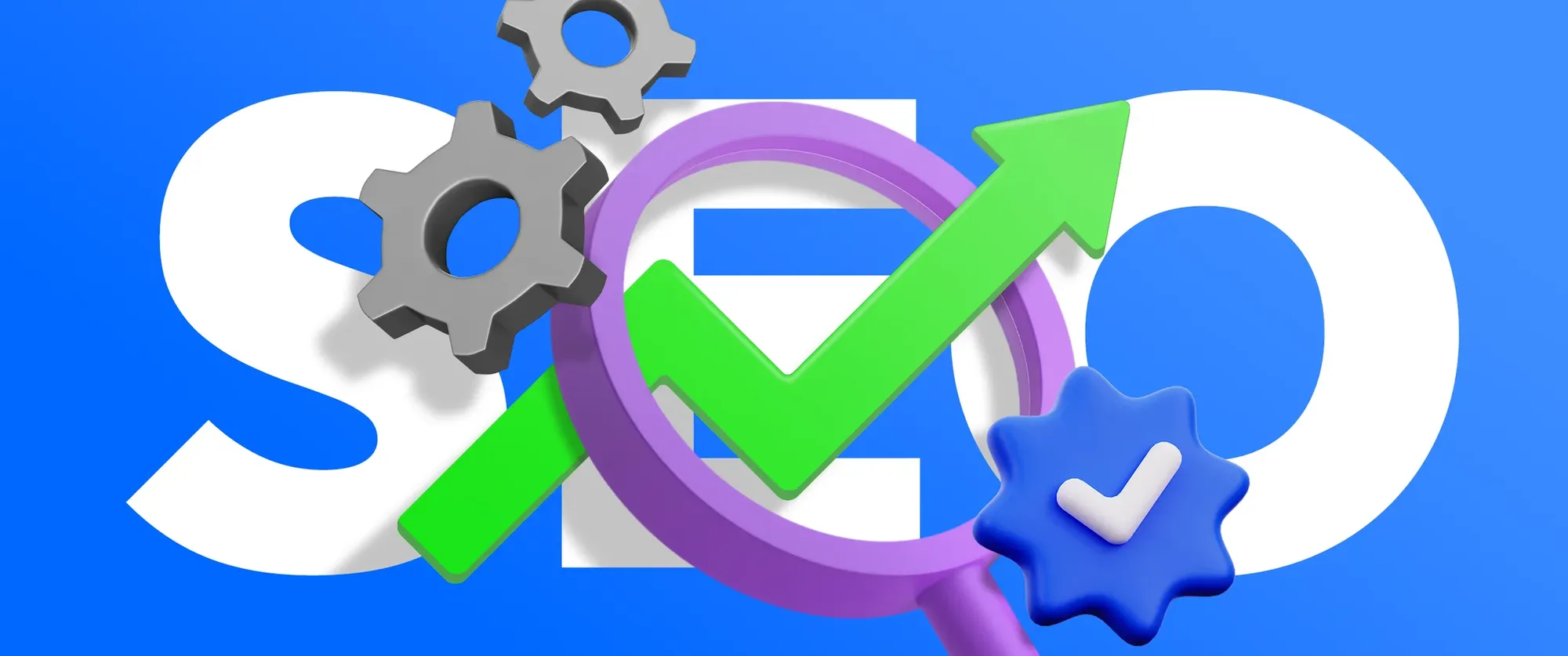Boost your online visibility with SEO
Today, in a constantly evolving digital world, it is imperative to understand how natural referencing (SEO) works to maximize your website's visibility.
Whether you're new to the subject or looking to refresh your knowledge, this article will guide you through the fundamentals of SEO. From carefully selecting keywords to optimizing your content, let's dive into the dynamic world of SEO.
After all, understanding SEO isn't just a skill, it's a necessity for anyone looking to stand out in a saturated online world.
In this article:
- Introduction to SEO best practices
- The benefits of SEO
- What is structured data
- The importance of keywords
- On-page optimization
- SEO friendly content
- Meta tag
- Using Google Analytics
- Common mistakes to avoid
- SEO trends 2024
Introduction to SEO, understanding the basics of natural referencing.
SEO (Search Engine Optimization) refers to all the methods used to allow a website to improve its position in web search systems such as Google, Yahoo or Bing. For example.
According to Hubspot, 75% of Internet users only consult the first page of search results. In other words, if your site does not appear on this first page when a search is performed, it risks going unnoticed. This is a visibility issue that is crucial to take into consideration.
The benefits behind SEO
Visibility
By targeting relevant keywords and optimizing content, tags, and other technical elements, SEO helps improve a website's visibility to users who perform searches related to its content.
Credibility
When a site appears at the top of search results for relevant keywords, it boosts its credibility and legitimacy in the eyes of users, who are likelier to trust sites that rank well.
Commitment
When visitors quickly find what they seek through SEO, they are likelier to stay on the site, explore more pages, and interact with the content.
Long-term ROI
It provides remarkable ROI because organic traffic attracts visitors without additional fees per click when optimized effectively.
Client experience
Optimizes user experience by providing smooth navigation, fast loading and relevant content through SEO improvements. This promotes visitor satisfaction and reduces the bounce rate.
What is structured data?
Structured data, also called semantic markup or schema.org, refers to a set of codes embedded in a website's content to help search engines better understand that content.
Why are they important in SEO?
Improved visibility: Generated rich snippets attract attention and enhance visibility in search results.
Content understanding: Makes indexing easier and allows search engines to understand the meaning of the content better.
Particular search positions: Ability to get specific positions in the results, such as position zero (featured snippet).
Increased CTR: Search results are more attractive, increasing the click-through rate on your link.
Adapting to emerging technologies: Prepares your site for voice search and other technologies.
The importance of keywords and how to choose them well for your content.
When we think of SEO, we first consider keywords, an essential part of the concept. But how do we choose the keywords that will allow our site to make its place on the significant web?
It is essential to choose keywords wisely, you have to take the time to ask yourself what the intention of the user looking for our content is.
For example, does a user want to make (informational intention) or buy (transactional intention) a giant chocolate cake? How the user searches in the search engine will significantly influence the results. Therefore, it is essential to use and formulate our keywords correctly.
On-page optimization is the key element to consider when creating your web pages.
On-page optimization plays an essential role in your website's SEO. It encompasses a series of key elements that directly impact how search engines evaluate and rank your content.
Elements such as title tags, description tags, header tags, and judicious use of keywords are all factors that contribute to the visibility of your pages on search engines.
By ensuring careful on-page optimization, you significantly improve your chances of achieving a higher position in search results, attracting more qualified traffic to your site.
SEO-friendly content, writing content that appeals to search engines and users.
Content creation is an art that requires a balanced approach between search engine optimization and meeting user needs. It often becomes one of the biggest challenges for web editors, who try to please SEO and users simultaneously.
By writing quality, informative and engaging content, you maximize your chances of attracting the attention of search engines while providing an enriching experience for your audience. BINGO!
Strategic use of relevant keywords, optimized title tags, and explicit content structure help boost your site's visibility in search results. In short, creating SEO-friendly content is a valuable investment that promotes both your site's SEO and the satisfaction of your visitors.
Meta tags and descriptions maximize their impact on SEO.
Meta tags and descriptions play a vital role in search engine optimization by helping to effectively communicate a page's content.
To maximize their SEO impact, developing catchy and informative meta tags and descriptions is crucial. The meta title tag should be concise and relevant and contain strategic keywords to attract the attention of search engines and users. As for the meta description tag, it offers the opportunity to generate interest and encourage clicks by concisely presenting the page's content.
Use of Google analysis tools such as Google Analytics and Google Search Console.
Google Analytics and Google Search Console are potent tools that offer relevant information to optimize your website's SEO performance. By leveraging this data, you can gain crucial insights into visitor behavior, traffic sources, most viewed pages, and much more.
Judicious use of Google Analytics and Search Console provides an in-depth look at your website's performance, allowing you to adjust your SEO strategy in real time to achieve optimal results. It’s an essential tool for SEO professionals looking to optimize their online presence.
The right KPIs to follow:
- Ranking in search engines
- Organic traffic
- Click-Through Rate (CTR)
- Commitment
- Most popular pages
- Inbound links
- Relevant keywords
- Conversions (sales or lead)
Common mistakes and pitfalls to avoid in your SEO strategy.
By implementing the strategies we have covered, you can transform your website into a perfect model of SEO best practices.
On the other hand, you could still make some mistakes which could negatively influence your performance. Here are a few:
- Misunderstanding your audience is a crucial mistake that can undermine the effectiveness of all your efforts. A deep understanding of your audience will prevent you from producing relevant content.
- Producing suitable content is a significant problem. Google's primary mission is to present users with content that best suits their queries. If your content needs to be better constructed, Google may not recognize it.
- Disseminating copied or plagiarized content constitutes a fundamental violation on the web. You must never borrow unauthorized content from others. Producing your original content ensures that you are rightly recognized and rewarded.
- Ignoring the importance of title and description tags is a mistake to avoid. While incorporating keywords into your content is crucial, consider the significant potential of titles and meta descriptions for your search engine optimization (SEO).
New trends in SEO
New SEO trends are constantly evolving to adapt to changes in search engine algorithms and user preferences. Here are some of the emerging trends in SEO.
Google E-E-A-T
The concept of Google E-E-A-T (Experience, Expertise, Authority, Trustworthiness) is essential in SEO and the Google algorithm.
It represents a set of criteria that Google uses to evaluate the quality and credibility of a website and its content.
Google's primary goal is to provide reliable and relevant search results. To this end, it favors sites that demonstrate proven expertise, authority in their field, and a trusted reputation.
E-E-A-T best practices
- High-quality content creation: Produce valuable, well-researched, and relevant content that meets visitor needs.
- Highlighting Expertise: Showcase your team's qualifications and skills to demonstrate your expertise in the field.
- Use of reliable sources: Support your claims by citing credible and trustworthy sources.
- Acquiring quality backlinks: Get links from reputable and relevant sites to build your online credibility.
- Complete About and Contact Page Creation: Make sure your pages featuring your business information and contact details are clear and detailed.
- Encouragement of positive reviews and testimonials: Encourage positive feedback from satisfied customers to build trust with future customers.
- Adherence to Google Guidelines: Comply with SEO best practices and quality guidelines set by Google to keep your site up to standard.
- Regular Content Update: Refresh your content frequently to demonstrate your site's commitment to providing current and relevant information.
The process of programmatic SEO
Programmatic SEO is a new generation of SEO that aims to maximize the efficiency and coverage of SEO efforts by automating content creation.
The process begins by leveraging a detailed database containing helpful information such as target keywords, product descriptions, etc.
Using code scripts or no-code tools, this information is used to create SEO-optimized web pages, each focusing on a specific set of keywords.
Why choose programmatic SEO?
Programmatic SEO effectively manages many long-tail keywords, attracting qualified traffic to your site.
Here are some benefits of programmatic SEO:
- Save time and effort by automating much of the content creation process.
- Expanding keyword coverage by automatically generating database-driven content, thereby increasing site visibility.
- Offers excellent flexibility by allowing new keywords to be added to the database and removing those that no longer perform.
Programmatic SEO in action
A concrete example: A specialized store sells a wide variety of lighting fixtures
- In a traditional SEO scenario, manually creating a page for each fixture would take months or even years.
- Programmatic SEO sets up a database with detailed information about each fixture.
- This database automatically generates a unique web page for each product optimized for specific keywords.
- Programmatic SEO also allows pages to be generated for many combinations of keywords, increasing site visibility for users searching for specific terms.
GPT chat to optimize SEO
Using Chat GPT (or other similar language generation models) can be an interesting approach to optimizing your SEO strategy. These models, like GPT-3, can generate content automatically and consistently, which can be beneficial in several aspects of SEO.
Some ways Chat GPT can be used to improve your SEO strategy:
Content generation for long-tail keywords: They are often more specific and less competitive but can attract targeted, qualified traffic. You can use Chat GPT to automatically create relevant, optimized content around these keywords, increasing your visibility for specific queries.
Writing attractive meta descriptions: Meta descriptions are essential for users to click on your page in search results. Using Chat GPT, you can generate captivating and optimized meta descriptions for each page on your site, which can improve your click-through rate (CTR) and your ranking in the SERPs.
Diverse content creation: Chat GPT can help you create different types of content, such as blog posts, guides, FAQs, etc. This helps diversify your site, attract a wider audience, and improve your authority in your field.
Effective keyword management: Chat GPT can help you identify new and relevant keywords to target by generating suggestions based on your preferred industry and topics.
Optimizing existing content: You can use Chat GPT to analyze your existing content and suggest improvements based on SEO best practices, such as using relevant keywords, attractive title tags, etc.
Social media content creation: Chat GPT can help you generate content ideas for social media posts, keeping you active and engaging your audience on these platforms.
Please note: Google does not penalize content written by Chat GPT as long as it is relevant and the information is verified. However, the accessible version of Chat GPT does not cite its sources and can potentially provide erroneous content. Therefore, it is essential to exercise caution and verify the accuracy of the generated content before using it.
Some tips to get the most out of this approach:
Always check the generated content: Although Chat GPT can produce quality content, it can also create errors or inconsistencies. Therefore, it is essential to always check the generated content before publishing it.
Don't use mass-generated content: Automated content should be used in a targeted and intelligent way. Don't overdo it by publishing mass-generated content, which can lead to duplicate content issues and harm your SEO.
Ensure you follow SEO best practices: Even if the content is generated automatically, you should still follow SEO best practices, such as optimizing title tags, content structure, internal linking, etc.
We are here for you
We realize we have just given you a lot of information, and you might feel lost in this whole universe. If this is the case, do not hesitate to contact us to discuss it with a professional from our team.






